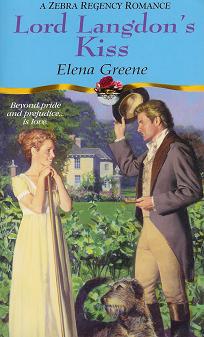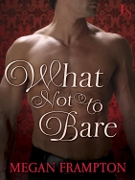I’m nearly done revising Lord Langdon’s Kiss (my first book, published in 2000). I’ve tweaked backstory and motivations and cut about 13,000 words. The cutting has been very easy; fifteen years have softened any attachment I had to that old prose. I’d say I had no ego involved at this point, but I’d be lying, because I have been mulling the thought of buying up all the copies still available in used bookstores and burning them!
I wish someone had told me to tighten this book, but I suspect the acquiring editor’s workload did not allow much time to work on books (like traditional Regencies) that did not receive large advances. Once a manuscript was deemed good enough to acquire in the first place, it seemed to be a case of “candidate passes.”
And since that phrase bubbled up from memories of The Court Jester with Danny Kaye, here’s the relevant clip. Just in case anyone could use a laugh.
Only one of my traditionally published books received any editorial feedback, and that was from a young editor who was probably more energetic and conscientious than most. (I would have enjoyed working with her again, but Signet ended the Regency line soon after that book.) My increasingly experienced group of critique partners has done more to improve my work than any editor.
So I laugh when I hear arguments that traditional publishing is always better than self publishing, because of the editing. I personally see pros and cons in both models. (Courtney Milan wrote an excellent post on this topic: Traditional versus Self Publishing—Official Death Match 2014.) However, my experience (which is not unique) is that working with a large New York city based publisher is still no guarantee of scrupulous editing, unless perhaps a very high advance is involved.
Even their proofreading is suspect. For instance, I recently read a traditionally published novella that had 3 grammatical and/or typographical errors. In a full length book, that would have been 10 or more errors, way over my personal threshold for professional work, which is 1 or 2. This is the first time I’ve seen anything so error-dense from traditional publishing, so I don’t know if the quality of proofreading has declined in general. I’ve heard readers complain about it, though.
There’s a huge variation in quality in self-published work as well. An indie book I read recently had the same endless internal dialogue issues as Lord Langdon’s Kiss. There was a lot I liked about the book, so I wish someone had advised the author to tighten the pacing.
A lot of indie authors do use various forms of quality control. I’ve been using a combination of beta readers and critique partners, several of whom are traditionally published authors. It’s a challenge to process feedback from as many as 5-8 different people, but I find it worthwhile. Other authors I know have hired anything from developmental editors to proofreaders, free lancers who have often worked (or still work) for large publishers. So a lot of indie books are as polished as any others, and sometimes more creative because they tackle themes and settings and other elements that may not have been thought marketable.
I’ve also heard there are self published books that are selling well despite poor editing, grammar, typographical errors, etc…. I haven’t read any myself, but it is said that a lot of readers don’t care about those things, as long as the story grabs them. That may be true. I’ve definitely observed the same about historical accuracy.
What do you think? Has the quality of editing changed over the years? How much does it matter to you as a reader?
Elena
www.elenagreene.com




